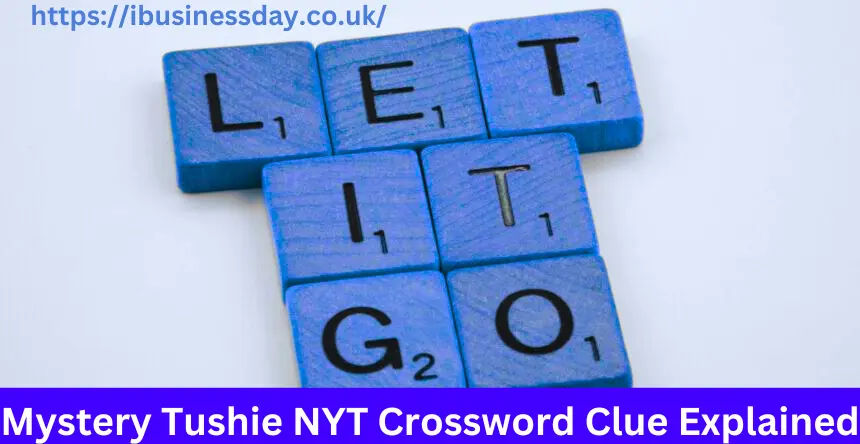Mystery Tushie NYT Crossword Clue Explained
The Tushie NYT Crossword, a staple of American culture and intellectual challenge, offers many clues ranging from straightforward to cryptically complex. One such clue that has captured the attention of many enthusiasts is “Tushie.” This seemingly simple word can perplex even the most seasoned crossword solvers, making its exploration intriguing and a deep dive into linguistic nuances and puzzle dynamics. Here, we unravel the mystery behind the Tushie NYT crossword clue, offering insights and strategies to enhance your puzzle-solving skills.
Understanding Tushie NYT
Tushie NYT, a playful term for the buttocks, is derived from Yiddish origin. It has been integrated into English as a less formal synonym for terms like rear, bottom, or backside. Using such a term in the NYT crossword puzzles highlights the puzzle creators’ penchant for including colloquial language, making the puzzle accessible yet challenging due to regional and dialectical variations in understanding.
Contextual Usage in Crosswords
The context is key in crossword puzzles, especially those as widely regarded as the NYT’s. Clues like “Tushie” may appear straightforward but require solvers to think beyond the immediate definitions. The challenge lies in the clue’s presentation:
- Direct Clues: Occasionally, “Tushie NYT” might appear in a puzzle with straightforward clues such as “Playful term for the backside.”
- Indirect Clues: More challenging puzzles may incorporate a pun or a theme, where the clue could be “Seating area, informally?” or “Part of a baby often patted.”
Decoding the Clue: Tips and Strategies
To effectively decode such clues, consider the following strategies:
- Understand the Language: Recognize that terms like “Tushie” are informal, suggesting that the clue and answer will likely operate in a colloquial register.
- Consider the Puzzle’s Theme: NYT crosswords often have themes, and clues may subtly tie into this larger concept.
- Cross-Check with Intersecting Answers: Use the letters from other answers that intersect with the clue in question to guide your guesses.
- Use Puzzle Resources: When stumped, feel free to consult crossword solver tools and databases. These can confirm suspicions or reveal new interpretations of clues.
The Role of Informal Language in Crosswords
The inclusion of informal language like “Tushie” serves several functions in crossword design:
- Engagement: It makes the puzzle relatable and sometimes humorous, increasing enjoyment and accessibility.
- Cultural Reflection: Such terms reflect everyday language and societal trends, capturing the evolving nature of language.
- Educational Aspect: They introduce solvers to different dialects or linguistic fun facts, enhancing their vocabulary and cultural knowledge.
Solving a “Tushie” Clue: Example Walkthrough
Let’s consider a hypothetical crossword where “Tushie NYT” is a clue. Assuming the clue is “Cheeky part, informally,” and we know it’s a five-letter word intersecting with H-A-P-Y at the second letter, the answer becomes clear: “Happy.” This playful interchange between the clue and the intersecting answers enriches the solving experience and exemplifies the cleverness often embedded in NYT crosswords.
Beyond the Puzzle: The Social Dimension of Crossword Clues
Crossword clues like “Tushie” also play a social role, sparking discussions and debates among enthusiasts. Online forums, social media platforms, and crossword clubs often light up with interpretations and explanations about such clues, fostering a community bound by a love for wordplay and puzzle-solving.
Conclusion
The Tushie NYT crossword clue is more than just a query on a puzzle—it’s a gateway into the rich interplay between language, culture, and intellectual challenge. Whether you are:
- A seasoned solver or a curious newbie.
- Understanding and appreciating the depth of such clues can significantly enhance your crossword experience.
- You are sharpening both your linguistic prowess and your problem-solving skills.
In embracing the simplicity and complexity of clues like “Tushie,” crossword enthusiasts join a broader conversation about language and its delightful quirks.







